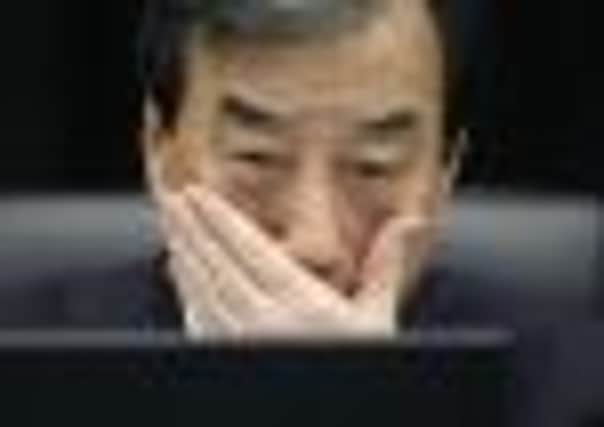Japan: Fukushima nuclear disaster ‘was preventable’, says panel


Damage from a huge earthquake on 11 March, 2011, and not just the ensuing tsunami, could not be ruled out as a cause of the accident, the panel added, a finding with serious potential implications as Japan seeks to bring idle reactors on line.
The panel criticised the response of plant operator Tokyo Electric Power (Tepco), regulators and then prime minister Naoto Kan, who quit last year after criticism of his handling of a natural disaster that became a man-made crisis.
Advertisement
Hide AdAdvertisement
Hide Ad“The Fukushima nuclear power plant accident was the result of collusion between the government, the regulators and Tepco, and the lack of governance by said parties,” the panel said in an English summary of a 641-page Japanese document.
The report – issued hours after a reactor began supplying electricity to the Japanese grid for the first time in two months – put an official imprimatur on criticism of the cosy ties that have bound a powerful nexus of interests known as the “nuclear village”.
Regulators, it said, had been reluctant to adopt global safety standards that could have helped prevent the disaster in which reactors melted down, spewing radiation and forcing about 150,000 people from their homes, many of whom will never return.
“Across the board, the commission found ignorance and arrogance unforgivable for anyone or any organisation that deals with nuclear power. We found a disregard for global trends and a disregard for public safety,” the panel said.
Japan is one of the world’s most quake-prone nations, and the finding that seismic damage may have played a role could affect the restart of reactors that were taken offline, mostly for maintenance and safety checks, in the months after Fukushima. “We have proved it cannot be said that there would have been no crisis without the tsunami,” Katsuhiko Ishibashi, a seismologist and panel member, said.
The panel urged strict checks on all reactors and said Japan’s 21 oldest reactors, whose construction was approved before guidelines were set in 1981, may be at similar risk from a big quake.
Experts say an active fault may lie under Kansai Electric Power Company’s Ohi plant in western Japan, whose No 3 unit began supplying the grid early yesterday. Ohi’s No 4 unit will come on line later this month after the government approved the restarts to avoid a power shortage.
The report by the experts – one of three panels looking into the Fukushima disaster – follows a six-month investigation involving more than 900 hours of hearings and interviews with more than 1,100 people.
Advertisement
Hide AdAdvertisement
Hide AdMany of the shocking details of the disaster, including Tepco’s failure to prepare for a big tsunami and the chaotic response by the utility and government, had already been made public.
In an effort to repair tattered public trust in the regulatory regime, the government will, in a few months, set up a more independent nuclear watchdog that will draft new safety rules.